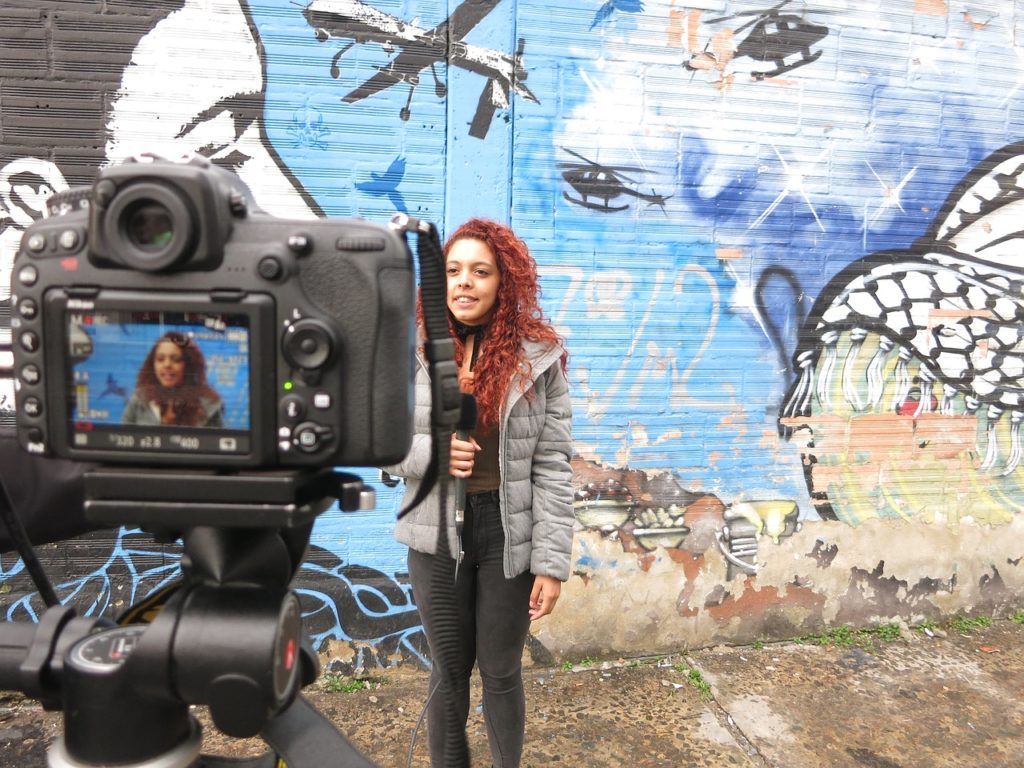Journalism is a high pressure, fast moving career. The news is constantly changing after all. Journalistic writing must have immediacy and topicality. This differentiates it from other forms of written expression.
Journalists gather, assess, and report on the news. Newspapers provide a forum for public reflection and debate. Therefore they have an obligation to present the truth in an objective, conscientious, and proportional manner.
Education
Journalism courses teach a broad range of skills. This includes how to research and write a story and develop your writing style.
Several options exist at third level. DCU, DIT, Griffith College (Dublin and Cork), UL, Dublin Business School, and Independent Colleges all offer journalism courses.
Typical subjects on a journalism course include:
- News Writing
- Feature Writing
- Law
- Media Studies
- Investigative Reporting & Research
- Photography
- TV & Radio Reporting
- Ethics of Journalism
Students also learn the role that journalism plays in the context of society, politics, and the economy – both historically and in terms of the present day and new media technologies.
There are interesting alternatives to regular journalism courses. These include journalism through Irish in DCU, with Irish or French in DIT, and with Visual Media such as photography and video in Griffith College Dublin.
Many courses include work placements with newspapers, TV, or radio stations. It is a good idea for student journalists to get involved with their college newspaper or radio station. This helps them build up a portfolio of articles to impress potential employers.
Journalism is also well catered for in further education. One-year certificates are provided in Print Journalism, and in conjunction with other disciplines such as Public Relations, Photography, Desktop Publishing, and Radio Broadcasting.
The Work
Many graduates start out as reporters for freesheets, Internet sites, trade magazines, or the local press, where they hone their skills on local issues or specific subjects (e. g. court reporting, entertainment listings, etc. ) and gain experience conducting interviews, writing stories, reporting news, web publishing, sub-editing copy, and page layout. This allows younger journalists to build a portfolio of stories with which to impress more prestigious national or specialist outlets.
The telephone is probably the most important tool of the professional journalist. More time is spent chasing stories, making contacts, researching information, and conducting interviews than actually writing the articles. Journalists can become experts in their particular areas (such as politics, sport, or culture) and must often explain complex issues in a language that everyone can understand.
Often, journalists aim to move from reporting to features or opinion writing. This means that they concentrate less on breaking news, and instead analyse the issues and contexts behind the stories.
Careers that are related to journalism include sub-editing and editing newspapers or magazines, marketing and PR, and researching or producing for TV and radio news programmes. Sub-editors check and rearrange the text submitted to make sure that it complies with the paper’s style and point of view. Radio and TV researchers and producers source information, organise interviewees, and plan schedules for news programmes.
A clear writing style is important to good journalism; and while a distinct voice is an asset that will make your articles more memorable and enjoyable, you must also be able to switch style in order to match the tone of whatever publication you are reporting for at the time. The ability to work well under pressure and to extremely tight deadlines is also a hugely important attribute.
Did you know?
The founder of the modern-day Financial Times, one of the largest business news publications in the world, was from Ireland. Brendan Bracken was born in Templemore, County Tipperary, though he spent much of his later life abroad and in denial of his Irish roots. Bracken also published The Economist, was the founding editor of The Banker, and, perhaps most remarkably, was an advisor and close friend of Winston Churchill for more than thirty years.
Further Resources












Comments